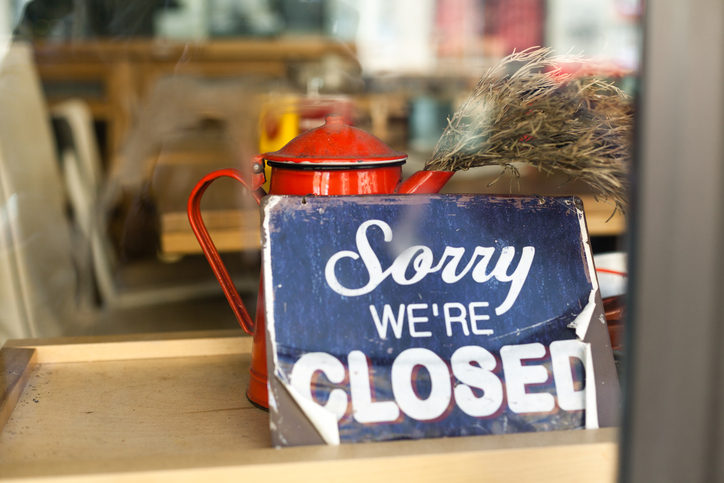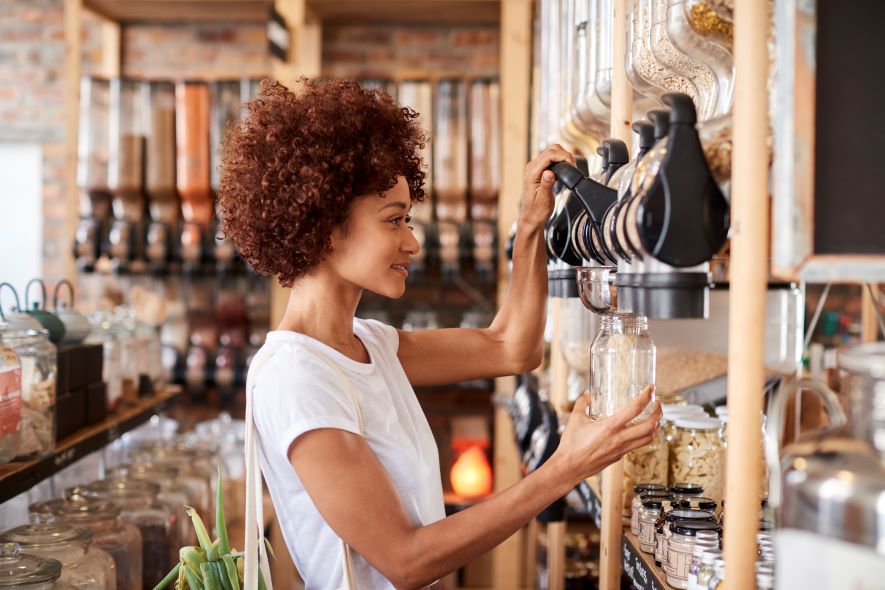At 10:30 on a Sunday evening, Steve Lapenta’s phone rang. An employee of Lapenta’s small natural foods business, The Bridge in Middletown, Conn., was on the line.
“You should come down here,” the employee said. “A truck just crashed into the building.”
Lapenta hurried to the scene where he met a cadre of police cars, fire trucks and flashing lights—and a carpet cleaning van that had plunged halfway through the front door of the small storefront where he and his staff of eight make tofu and other soy-related food products.
Luckily, no one was injured. The van driver was taken to the hospital as a precautionary measure and the one employee who was working at the time saw the van heading for the building and quickly moved out of harm’s way. But the damage to the 900 square-foot plant was extensive.
“The door was taken down and the masonry was buckled for six to eight feet on either side,” Lapenta said. “One of the front windows was broken and the interior of the building was a mess. A table was smashed and there was equipment and foodstuff all over the place.”
The City of Middletown’s building official declared the building unsafe and prohibited its use or occupancy until the necessary repairs were made.
Storefront Crashes: A Nationwide Problem
Vehicle-into-building crashes are not uncommon in the United States. Such accidents occur 60 times a day, leading to more than 4,000 injuries and as many as 500 deaths annually. Most are caused by pedal or other operator errors, says Rob Reiter, spokesperson for the Storefront Safety Council.
“The driver thinks they have their foot on the break when it’s really on the gas,” Reiter said, “or a driver pulls out of a parking space thinking they have the car in reverse when it’s actually in drive.”
The driver, looking backward, is unaware that the car is actually accelerating forward into the building—until it’s too late. Other major causes of storefront crashes include drivers who are distracted or under the influence.
In Lapenta’s case, the van driver was trying to avoid an accident with an oncoming vehicle while traveling on the four-lane state highway where Lapenta’s business sits just 20 feet from the curb. It’s a busy commercial area, and traffic moves rapidly day and night—well over the 35 mph speed limit, according to Lapenta.
A Costly Risk for Business Owners
Storefront crashes put lives at risk, including pedestrians, customers, employees, the driver and any passengers, and they always cause property damage. This often means costly repairs and renovations, days or weeks of business downtime, and expenses associated with setting up shop in a temporary location while the damaged building is restored.
But there are ways to protect your storefront from errant vehicles, according to Reiter. The simplest solution is to minimize nose-in parking spaces at storefronts. Another method is to install safety barriers or bollards that prevent vehicles from crashing into your business and injuring pedestrians who may be on the premises, or to at least minimize the damage such accidents may cause.
The Value of Business Insurance
Should an accident occur, business insurance can be a business-saver—and it’s likely you need more than one type of protection to cover the range of losses that can occur:
- Property insurance protects your building (if you own it) and your business personal property, such as office equipment, computers, inventory and tools.
- General liability insurance covers your defense and damages if you are held liable for bodily injury or property damage to a third party.
- Business interruption insurance protects your earnings if your business is unable to operate.
- Worker’s compensation provides coverage for employees who are injured on the job.
A business owner’s policy is designed specifically for the needs of small businesses, and combines business property, general liability and business interruption insurance in one policy.
Lapenta’s Quick Recovery
Lapenta, who had a business owner’s policy, contacted his insurance company immediately upon seeing the accident. The claims adjuster arranged for a contractor to build a temporary enclosure for the damaged part of his building, and Lapenta’s business experienced only one full day of downtime.
“We were up and running by noon on Tuesday,” Lapenta said. “Everything was cleaned up and we were working again. We didn’t skip a beat. We missed a few deliveries, but nothing significant.”
Three weeks later, the restoration of his building was complete, including a rebuilt front wall, new front door and window, new stainless steel tables and other essential sundries that had been damaged in the accident. The total cost covered by insurance was about $35,000.
“The whole process was pretty painless,” Lapenta said.
Even the most careful drivers make mistakes, and with the increased use of cellphones and in-car entertainment, the risk of operator errors is on the rise. It’s more important than ever to take measures to protect your business, employees and customers from the risk of a storefront collision.
Next Steps: Are you looking to keep up with the latest research and trends? We’ve got you covered with the weekly Small Biz Ahead Newsletter. Sign up today and start receiving the weekly newsletter chock full of the latest tools and resources to help you run a successful business.





